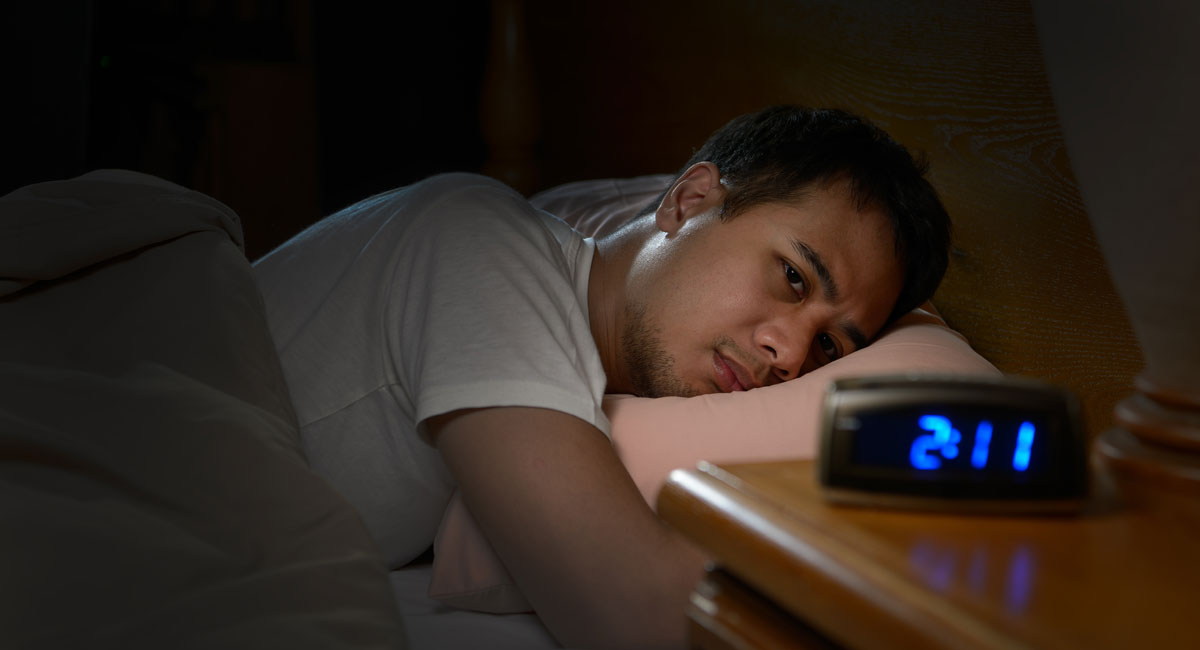Heart health: We often associate bedtimes with children, but a new study reveals that adults should be just as strict with their own sleep cycles/pattern.

A study, which was led by an international team of researchers, says going to sleep between 10 pm and 11 pm is associated with a lower risk of developing heart disease compared to earlier or later bedtimes. Sleep cycles/ pattern play a major role in overall being and that of heart too.
 Also read | Punjabi made compulsory for all students from Classes I to 10 in Punjab
Also read | Punjabi made compulsory for all students from Classes I to 10 in Punjab
The study was published in the European Heart Journal — Digital Health, a journal of the European Society of Cardiology (ESC). "The body has a 24-hour internal clock, called circadian rhythm, that helps regulate physical and mental functioning, while we cannot conclude causation from our study, the results suggest that early or late bedtimes may be more likely to disrupt the body clock, with adverse consequences for heart health," said study author Dr David Plans of the University of Exeter, UK.
While numerous analyses have investigated the link between sleep duration and cardiovascular disease, the relationship between sleep timing and heart disease is underexplored. This study examined the association between objectively measured, rather than self-reported, sleep onset in a large sample of adults.

The study included 88,026 individuals in the UK Biobank recruited between 2006 and 2010. The average age was 61 years (range 43 to 79 years) and 58 per cent were women. Data on sleep onset and waking up time were collected over seven days using a wrist-worn accelerometer. Participants completed demographic, lifestyle, health, and physical assessments and questionnaires.
Also read | PMAY-G: PM transfers first instalment to 1.47 lakh beneficiaries in Tripura
They were then followed up for a new diagnosis of cardiovascular disease, which was defined as a heart attack, heart failure, chronic ischaemic heart disease, stroke, and transient ischaemic attack.
During an average follow-up of 5.7 years, 3,172 participants (3.6 per cent) developed cardiovascular disease. Incidence was highest in those with sleep times at midnight or later and lowest in those with sleep onset from 10:00 to 10:59 pm.

The researchers analysed the association between sleep onset and cardiovascular events after adjusting for age, sex, sleep duration, sleep irregularity (defined as varied times of going to sleep and waking up), self-reported chronotype (early bird or night owl), smoking status, body mass index, diabetes, blood pressure, blood cholesterol, and socioeconomic status.
Compared to sleep onset from 10 pm to 10.59 pm, there was a 25 per cent higher risk of cardiovascular disease with sleep onset at midnight or later, a 12 per cent greater risk for 11 pm to 11.59 pm, and a 24 per cent raised risk for falling asleep before 10 pm.

In a further analysis by sex, the association with increased cardiovascular risk was stronger in women, with only sleep onset before 10 pm remaining significant for men.
Dr Plans said, "Our study indicates that the optimum time to go to sleep is at a specific point in the body's 24-hour cycle and deviations may be detrimental to health. The riskiest time was after midnight, potentially because it may reduce the likelihood of seeing morning light, which resets the body clock."

Dr Plans noted that the reasons for the observed stronger association between sleep onset and cardiovascular disease in women are unclear.
-PTC News

 Also read | Punjabi made compulsory for all students from Classes I to 10 in Punjab
Also read | Punjabi made compulsory for all students from Classes I to 10 in Punjab
























 The researchers analysed the association between sleep onset and cardiovascular events after adjusting for age, sex, sleep duration, sleep irregularity (defined as varied times of going to sleep and waking up), self-reported chronotype (early bird or night owl), smoking status, body mass index, diabetes, blood pressure, blood cholesterol, and socioeconomic status.
Compared to sleep onset from 10 pm to 10.59 pm, there was a 25 per cent higher risk of cardiovascular disease with sleep onset at midnight or later, a 12 per cent greater risk for 11 pm to 11.59 pm, and a 24 per cent raised risk for falling asleep before 10 pm.
The researchers analysed the association between sleep onset and cardiovascular events after adjusting for age, sex, sleep duration, sleep irregularity (defined as varied times of going to sleep and waking up), self-reported chronotype (early bird or night owl), smoking status, body mass index, diabetes, blood pressure, blood cholesterol, and socioeconomic status.
Compared to sleep onset from 10 pm to 10.59 pm, there was a 25 per cent higher risk of cardiovascular disease with sleep onset at midnight or later, a 12 per cent greater risk for 11 pm to 11.59 pm, and a 24 per cent raised risk for falling asleep before 10 pm.
 In a further analysis by sex, the association with increased cardiovascular risk was stronger in women, with only sleep onset before 10 pm remaining significant for men.
Dr Plans said, "Our study indicates that the optimum time to go to sleep is at a specific point in the body's 24-hour cycle and deviations may be detrimental to health. The riskiest time was after midnight, potentially because it may reduce the likelihood of seeing morning light, which resets the body clock."
In a further analysis by sex, the association with increased cardiovascular risk was stronger in women, with only sleep onset before 10 pm remaining significant for men.
Dr Plans said, "Our study indicates that the optimum time to go to sleep is at a specific point in the body's 24-hour cycle and deviations may be detrimental to health. The riskiest time was after midnight, potentially because it may reduce the likelihood of seeing morning light, which resets the body clock."
 Dr Plans noted that the reasons for the observed stronger association between sleep onset and cardiovascular disease in women are unclear.
-PTC News
Dr Plans noted that the reasons for the observed stronger association between sleep onset and cardiovascular disease in women are unclear.
-PTC News





















